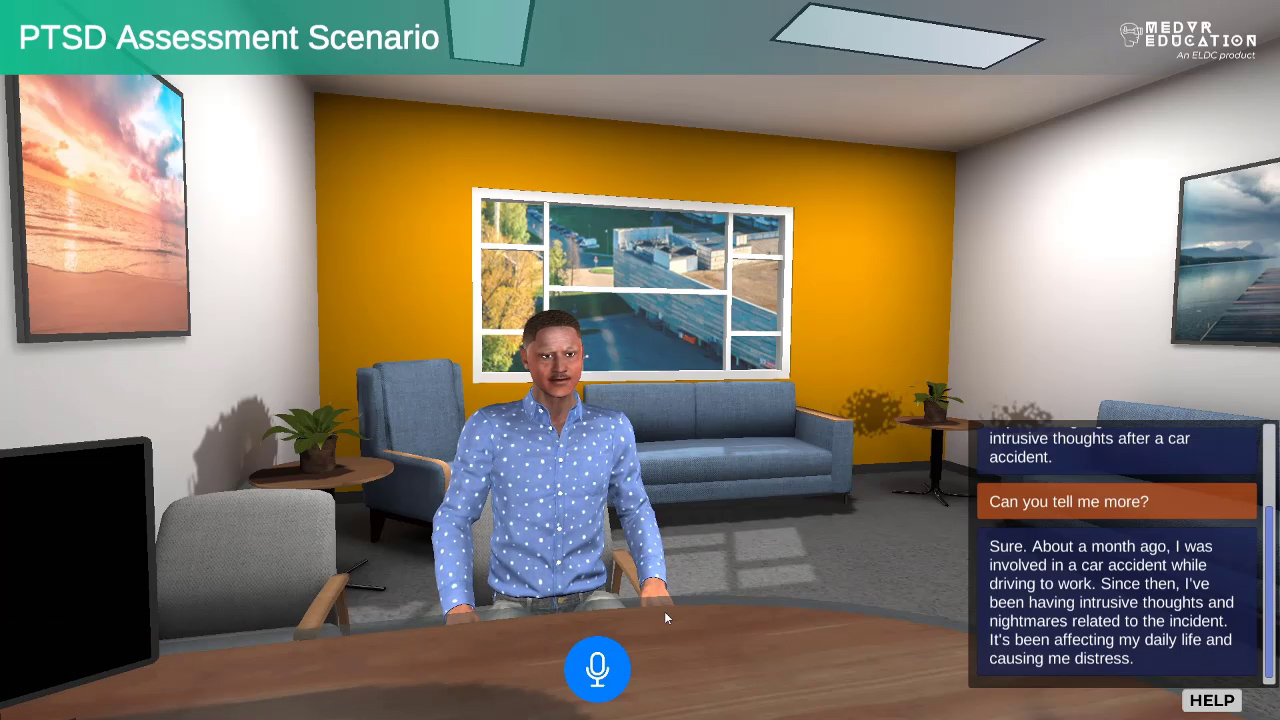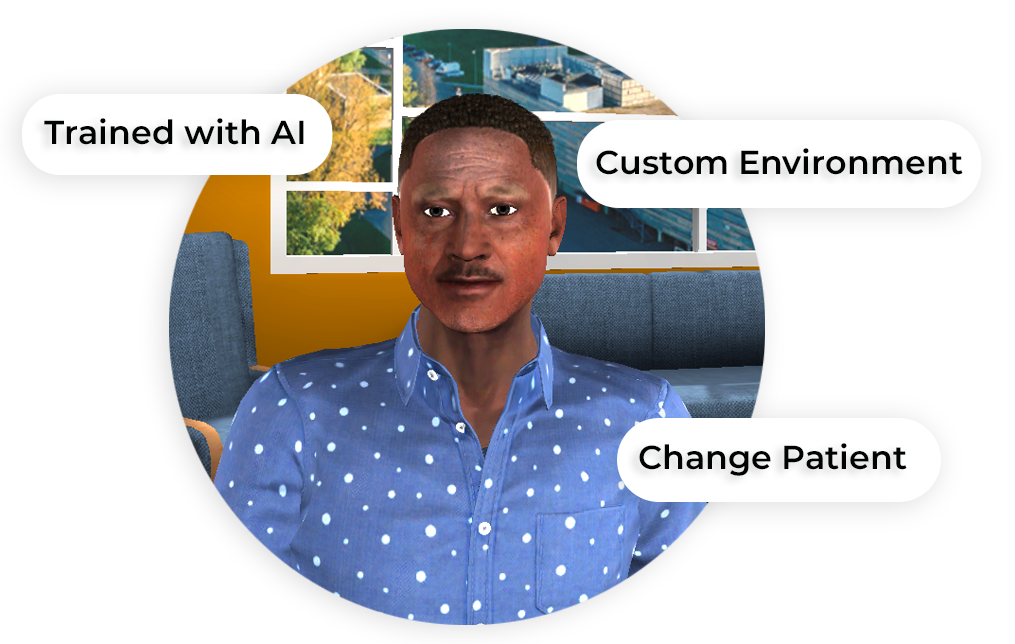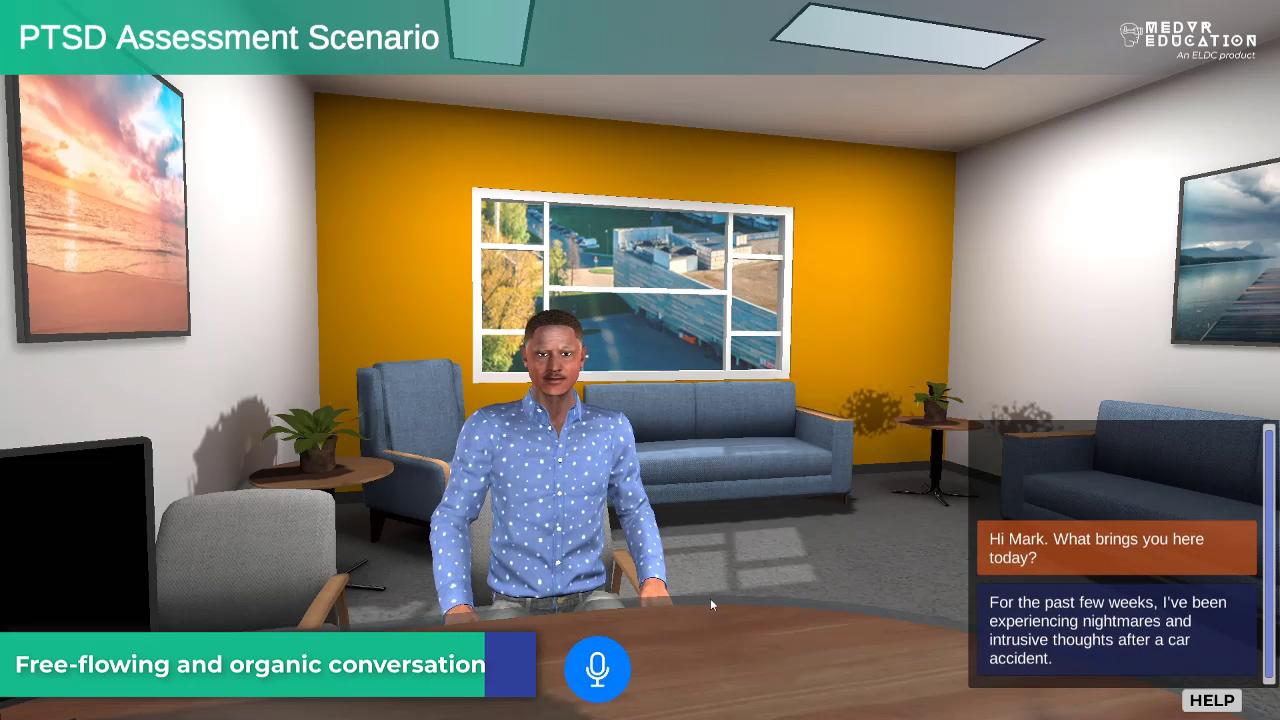PTSD Assessment
Available in VR and web browser
This Post Traumatic Stress Disorder (PTSD) Assessment tool is designed to help learners practice their patient assessment skills.
Employing end-to-end AI and technologies like large language model (LLM) and deep learning, these virtual ‘clients’ possess the ability to respond like real humans. Learners can conduct a completely organic conversation with the client, asking them about their symptoms and problems faced. Based on the client’s responses, a line of diagnosis can be established and treatment plan formulated.
The MedVR Ed XR Platform provides trainers and instructors the facility to review conversation logs and analyze learner performance based on customized rubrics. Based on the performance review, trainers will be able to provide precise and effective feedback.
- Build knowledge of patient’s trauma history
- Demonstrate understanding of patient’s health concerns
- Approach the patient’s trauma case with objectivity
- Conduct an accurate diagnosis
- Gain improved professional competence

- Blake, D. D., Weathers, F. W., Nagy, L. M., Kaloupek, D. G., Gusman, F. D., Charney, D. S., & Keane, T. M. (1995). The development of a Clinician-Administered PTSD Scale. Journal of traumatic stress, 8(1), 75-90.
- Breslau, N., Peterson, E. L., & Schultz, L. R. (2008). A second look at prior trauma and the posttraumatic stress disorder effects of subsequent trauma: a prospective epidemiological study. Archives of general psychiatry, 65(4), 431-437.
- Davidson, J. R., Book, S. W., Colket, J. T., Tupler, L. A., Roth, S., David, D., … & Feldman, M. E. (1997). Assessment of a new self-rating scale for post-traumatic stress disorder. Psychological medicine, 27(1), 153-160.
Customize Your Case
Build your own AI-Humans patient
MedVR Education is bringing to you a no-code authoring platform to create new patient cases and customized patient history. Put together your own cases by making selections from a wide range of customizing features.
- Create with web-based authoring tool
- Publish in VR, desktop, and mobile devices
- Train your virtual patient by yourself
- Select patient from a diverse background
- Choose preferred virtual environment
- Perform real-time testing
- Track and train new data

 AI Patient Assessment
AI Patient Assessment Natural Language Processing
Natural Language Processing
Case History

PTSD Assessment
Mark is a 32-year-old male who has been in a car accident about a month back and is now visiting for a PTSD assessment.
On his way home from work, a car jumped a red-light signal and came crashing into Mark’s car. Mark developed a back pain due to the impact of the hit. He does not vividly remember the details of the accident but gets agitated and anxious at the mere thought of it. He tries to push away the memories of the incident but often wakes up from his sleep in a traumatized state. The constant back pain serves as another reminder of the accident.
As a mental health professional, whether a psychiatrist, technician, or someone with a social work background, your task is to assess Mark’s condition, ask him relevant questions and understand his mental state to arrive at a decision about his treatment plan.


